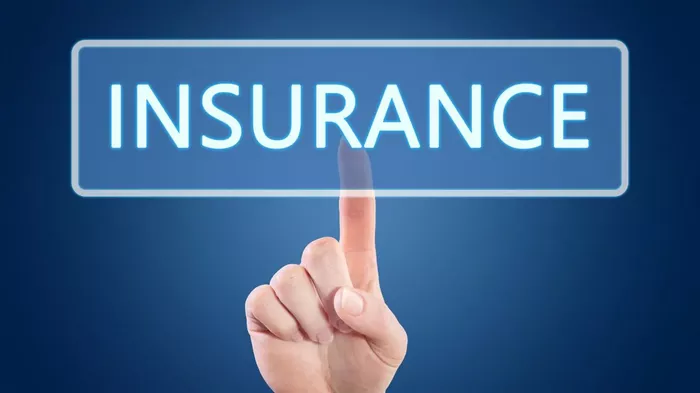Renting a car can be a convenient and affordable option when traveling or temporarily in need of transportation. However, when you rent a vehicle, you may be presented with the option to purchase extra insurance coverage. This raises a common question among renters: Do you need extra insurance when renting a car?
In this article, we will provide an in-depth look at rental car insurance, its types, whether or not you really need it, and how to evaluate your existing coverage before you decide to purchase additional protection from the rental company.
What is Rental Car Insurance?
Rental car insurance is coverage offered by the car rental company to protect both you and the vehicle you rent during the rental period. This insurance can cover a wide range of potential issues, such as damage to the car, theft, and liability for injury or property damage caused in an accident.
Rental car companies often present various types of insurance coverage as optional add-ons, and the cost can vary depending on the company and the location. Understanding these options and whether they are necessary can help you make an informed decision.
Common Types of Rental Car Insurance
When you rent a car, you will typically be offered several insurance options. Some of the most common types of rental car insurance include:
1. Collision Damage Waiver (CDW) / Loss Damage Waiver (LDW)
This is one of the most commonly offered insurance options at rental agencies. The Collision Damage Waiver (CDW) or Loss Damage Waiver (LDW) covers damage to the rental vehicle in the event of an accident or theft. However, it is important to note that this is not technically insurance but a waiver. It means that the rental company waives its right to seek compensation for damages from you.
Coverage: If the car is damaged or stolen, the rental company will not hold you financially responsible.
Exclusions: CDW/LDW may not cover certain types of damage, such as damage to tires, windows, or the undercarriage, or if the accident occurred while driving under the influence of alcohol or drugs.
2. Liability Insurance
Liability insurance covers damages or injuries you may cause to others in an accident. This insurance is required by law in most places, and rental companies often provide basic liability coverage at no additional cost. However, this coverage may be minimal, and the limits might not be enough to protect you fully in the event of a serious accident.
Coverage: Pays for damages or injuries caused to other drivers, passengers, or pedestrians.
Exclusions: May not cover damage to your rental vehicle, and the amount of coverage may be lower than what you need.
3. Personal Accident Insurance (PAI)
Personal Accident Insurance covers medical expenses for injuries sustained by you or passengers in your rented vehicle. It can also cover accidental death benefits. Rental companies offer this insurance as an add-on, but it is not always necessary depending on other coverage you may already have.
Coverage: Pays for medical treatment for injuries sustained in an accident.
Exclusions: May not cover pre-existing medical conditions or injuries that occur when you’re not in the car.
4. Personal Effects Coverage (PEC)
Personal Effects Coverage protects your personal belongings if they are damaged, stolen, or lost from your rental vehicle. This is often a good idea if you’re traveling with valuable items like electronics, jewelry, or cash.
Coverage: Covers stolen or damaged personal items from the rental car.
Exclusions: May not cover certain items, such as high-value electronics, or items left unattended in the vehicle.
5. Supplemental Liability Insurance (SLI)
Supplemental Liability Insurance is an additional layer of protection above the basic liability insurance included with your rental. It increases the coverage limits for damage or injury caused to others in an accident. This can be useful if you’re traveling in an area where accidents are more common or if you’re concerned about the low limits of the rental company’s basic liability coverage.
Coverage: Increases the amount of liability insurance for damage or injury to others.
Exclusions: May not cover damage to your vehicle or injuries to you or your passengers.
Do You Really Need Extra Insurance?
Whether or not you need extra insurance when renting a car depends on several factors, including your current insurance coverage, the specifics of the rental agreement, and the type of coverage offered by the rental company. Below, we explore various scenarios to help you decide.
1. Check Your Personal Car Insurance
Many people already have car insurance coverage through their personal auto insurance policy. This coverage may extend to rental cars as well. Before purchasing additional insurance from the rental company, it’s important to check your existing coverage to see what it includes.
Does Your Personal Car Insurance Cover Rental Cars?
Collision Coverage: If you have collision and comprehensive coverage on your personal vehicle, your insurer may also extend that coverage to a rental car. This would typically cover damage to the rental vehicle in the event of an accident or theft. However, this may not cover things like loss of use fees (the cost to the rental agency for the period the car is out of service) or certain types of damage (like tires or windows).
Liability Coverage: Most personal auto insurance policies include liability coverage that will extend to a rental car. This would cover you if you’re responsible for damages or injuries to others while driving the rental.
Exclusions: Some personal auto policies do not cover rental cars abroad, so if you’re renting in a foreign country, it’s important to check your policy’s terms.
If you have coverage through your personal car insurance, you may not need the additional coverage offered by the rental company.
2. Check Your Credit Card Benefits
Many credit cards, especially premium cards, offer rental car insurance as part of their benefits package. This coverage may include collision damage and theft protection when you rent a car using the credit card. The coverage typically applies when the entire rental is paid for with the credit card.
What Does Credit Card Insurance Cover?
Collision Damage: Many credit cards offer coverage for damage to the rental car due to collision, vandalism, or theft, similar to what CDW/LDW covers.
Exclusions: Credit card rental car insurance typically has exclusions, such as restrictions on the countries where it applies, a requirement that you decline the rental company’s insurance, and coverage for certain types of vehicles (like luxury cars or trucks).
Be sure to verify the details of your card’s coverage before relying on it, as the terms can vary between credit card issuers.
3. Consider the Cost of Additional Insurance
When renting a car, it’s important to evaluate the cost of the insurance being offered. Rental car insurance can be expensive, and the total cost of adding multiple coverages can quickly add up.
Collision Damage Waiver: Can add an additional $10 to $30 per day to the rental cost.
Liability Coverage: If you’re in an area with high liability risks or where the minimum required coverage is low, this coverage may be worth purchasing, especially if it costs only a small amount more per day.
Personal Accident Insurance and Personal Effects Coverage: These can also be added for an extra fee, but they may not always be necessary depending on your existing insurance or personal circumstances.
Weigh the potential cost of additional insurance against the amount of risk you’re comfortable taking on. If the rental car insurance options are significantly more expensive than your current coverage or what your credit card offers, you may decide that purchasing extra coverage is not worth it.
4. Understand Your Rental Agreement
Rental agreements vary between companies, so it’s important to read the terms and conditions carefully. Some agreements may have specific clauses or exclusions related to insurance coverage.
Excessive Charges: Be aware of additional charges that could arise if the car is damaged, even if you have purchased coverage.
Rental Car Insurance Coverage Limits: Review the maximum coverage limits of each policy to ensure they align with your risk tolerance and potential exposure.
Make sure to ask the rental agency about what is and isn’t covered, especially if you’re concerned about specific scenarios like damage to the tires, undercarriage, or roof of the vehicle, which may not always be included in CDW/LDW coverage.
Conclusion
When renting a car, whether or not you need extra insurance largely depends on your personal insurance coverage, your credit card benefits, the rental company’s offerings, and the cost of the additional coverage. In many cases, if you have robust personal auto insurance or a credit card that provides rental car insurance, you may not need to purchase extra protection from the rental company.
However, it’s important to evaluate your existing coverage and the specific terms of the rental agreement to make an informed decision. If you’re unsure about the terms, it’s always best to ask questions and clarify the details with the rental agency before finalizing the rental agreement.
By understanding your options and weighing the costs and benefits of extra insurance, you can ensure that you’re adequately protected while avoiding unnecessary expenses.
Related topics:
- What is a Deductible in Renters Insurance?
- What Is the Cheapest Dental Insurance?
- What Is the Most Expensive Insurance?


































